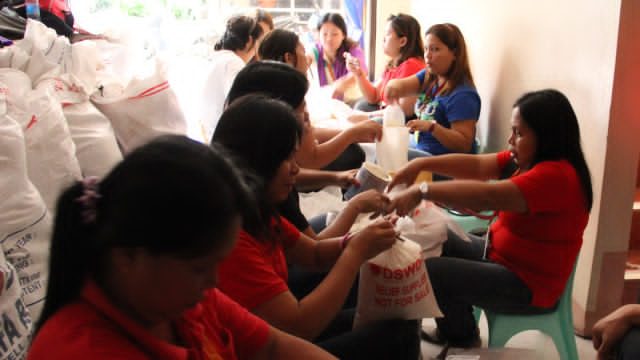SUMMARY
This is AI generated summarization, which may have errors. For context, always refer to the full article.

MANILA, Philippines – As the world braces for stronger disasters and adverse impacts of climate change, how do we ensure the welfare of humanitarian workers and responders? How do we ensure the flow of humanitarian aid to help survivors of calamities and conflicts?
These were the questions that the United Nations Office for the Coordination of Humanitarian Affairs (UN OCHA), and other humanitarian groups posed on Wednesday, August 19, during the celebration of World Humanitarian Day 2015. (READ: Pay it forward: confessions of a humanitarian worker)
The yearly commemoration and awareness campaign kicked off with a call to action to support its #ShareHumanity online campaign, where the public was asked to “donate” their Facebook and Twitter feeds to share inspiring stories of humanitarian workers all over the world.
Everyday sacrifices
For UN OCHA Associate Humanitarian Affairs Officer Madoka Koide, the Philippines is an “inspiring source for other countries.” Koide cited the spirit of volunteerism which seemed to be prevalent among Filipinos especially in times of disasters. “In this country, you don’t have to actually be a humanitarian, (as) there are people who actually help,” he said.
Koide also highlighted the importance of the everyday work of humanitarian workers. “Many humanitarian workers have sacrifice time, many of them sacrifice proximity with their families. Many of them have also sacrificed their lives.” (READ: What’s it like to be a humanitarian worker?)

For Philippine Red Cross Secretary-General Gwendolyn Pang, the annual celebration must also serve as a reminder for everyone to strengthen preparedness against disasters
“After Typhoon Yolanda, Typhoon Ruby and other typhoons after Yolanda, we have seen that people are more aware – they’re more prepared. They do pre-emptive evacuation, and we have seen less and less lives and resources lost unnecessarily,” Pang said.
She also urged the public to make preparedness as a way of life. “I think we should not just depend on aid workers, not just depend on people who would help, but as a country, we have to be better prepared.”
World Humanitarian Summit
Koide emphasized that the celebration is a prelude to the World Humanitarian Summit happening in May 2016 in Istanbul, Turkey.
“Globally, it’s a big challenge because every year, we have more people who are hit in a crisis, more places (where we) have to respond. Yet, we struggle to get funds, to get even human resources to go to all these places and help people,” she said.
Koike also sees a multi-sectoral approach on ensuring flow of humanitarian aid especially in times of disasters and conflicts. “We have to tap onto the resources of a lot more wider communities through partnerships – not only UN agencies, not only NGOs that we usually count on but of course government, most of the private sector and also the youth.”
The celebration culminated with the public screening of the film produced by the SURGE project which features effective disaster risk reduction practices around the Philippines. SURGE, which stands for Scaling Up Resilience in Governance, helps high-risk communities in the country to build resilience to disasters especially of the most vulnerable groups.
The World Humanitarian Day is held every August 19 to commemorate the anniversary of the 2003 UN Headquarters bombing in Baghdad, Iraq where 22 people have been reported dead and to raise awareness on humanitarian aid worldwide. – with reports from Jay Agonoy/Rappler.com
Jay Agonoy is a Rappler Intern.
Add a comment
How does this make you feel?





There are no comments yet. Add your comment to start the conversation.